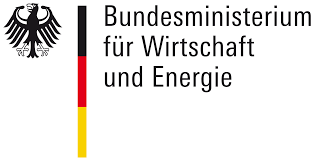Bioplan W
System solutions for bioenergy in the heating sector in the context of future developments
Koordination:
Team at UFZ:
Public grant authority:

Project duration:
01.08.2016 – 31.09.2019
Short description:
Bioplan W maps the complexity of the heating sector in a model in order to quantitatively assess the development prospects of heat generation from biomass. Bioplan W studies and evaluates the effects (costs, environment and land use effects) of different heating technologies competing in sub-markets. On the basis of this analysis, various scenarios for the development prospects of heat generation from biomass are described.
Based on the results of the project, recommendations for policy makers on how to deal with different heating technologies are derived.
As part of the project consortium, the Department of Bioenergy is carrying out the modelling. For this purpose, the existing model BenOpt (BioEnergyOptimisation-Model) is supplemented by a further module which maps the heating sector. BenOpt is carrying out a cost optimization of the heating sector until 2050 - in which various heat-generating technologies compete with each other. The optimization target is the total costs (production costs and investment costs) for the period 2015 to 2050, taking into account all renewable technologies with a particular focus on bioenergy technologies. Natural gas and coal technologies serve as a fossil reference. The model is implemented in an annual resolution. Time dependent input parameters are marginal costs, investment costs, efficiency, heat demand and emission factors. A heating technology often consists of several modules. The lifetime of each module is taken into account in the model and corresponding investments are made. If combined heat and power plants are used, the remuneration for the generated electricity is charged as a by-product. The boundary conditions of the model include the biomass available annually and the defined climate protection targets of the German Federal Government from the Energy Concept and EEWärmeG.
When modelling, one is always confronted with uncertainties of the input parameters, e. g. the development of electricity prices until 2050. In BioPlanW, a sensitivity analysis method was implemented in the model to determine which input parameters have a significant influence on the optimization result. Based on these results, a solution space is created depending on the significant parameters.
Based on the results of the project, recommendations for policy makers on how to deal with different heating technologies are derived.
As part of the project consortium, the Department of Bioenergy is carrying out the modelling. For this purpose, the existing model BenOpt (BioEnergyOptimisation-Model) is supplemented by a further module which maps the heating sector. BenOpt is carrying out a cost optimization of the heating sector until 2050 - in which various heat-generating technologies compete with each other. The optimization target is the total costs (production costs and investment costs) for the period 2015 to 2050, taking into account all renewable technologies with a particular focus on bioenergy technologies. Natural gas and coal technologies serve as a fossil reference. The model is implemented in an annual resolution. Time dependent input parameters are marginal costs, investment costs, efficiency, heat demand and emission factors. A heating technology often consists of several modules. The lifetime of each module is taken into account in the model and corresponding investments are made. If combined heat and power plants are used, the remuneration for the generated electricity is charged as a by-product. The boundary conditions of the model include the biomass available annually and the defined climate protection targets of the German Federal Government from the Energy Concept and EEWärmeG.
When modelling, one is always confronted with uncertainties of the input parameters, e. g. the development of electricity prices until 2050. In BioPlanW, a sensitivity analysis method was implemented in the model to determine which input parameters have a significant influence on the optimization result. Based on these results, a solution space is created depending on the significant parameters.
Final report and Publications:
The following project partners are involved in Bioplan W:
Lead:
Partner:
and
